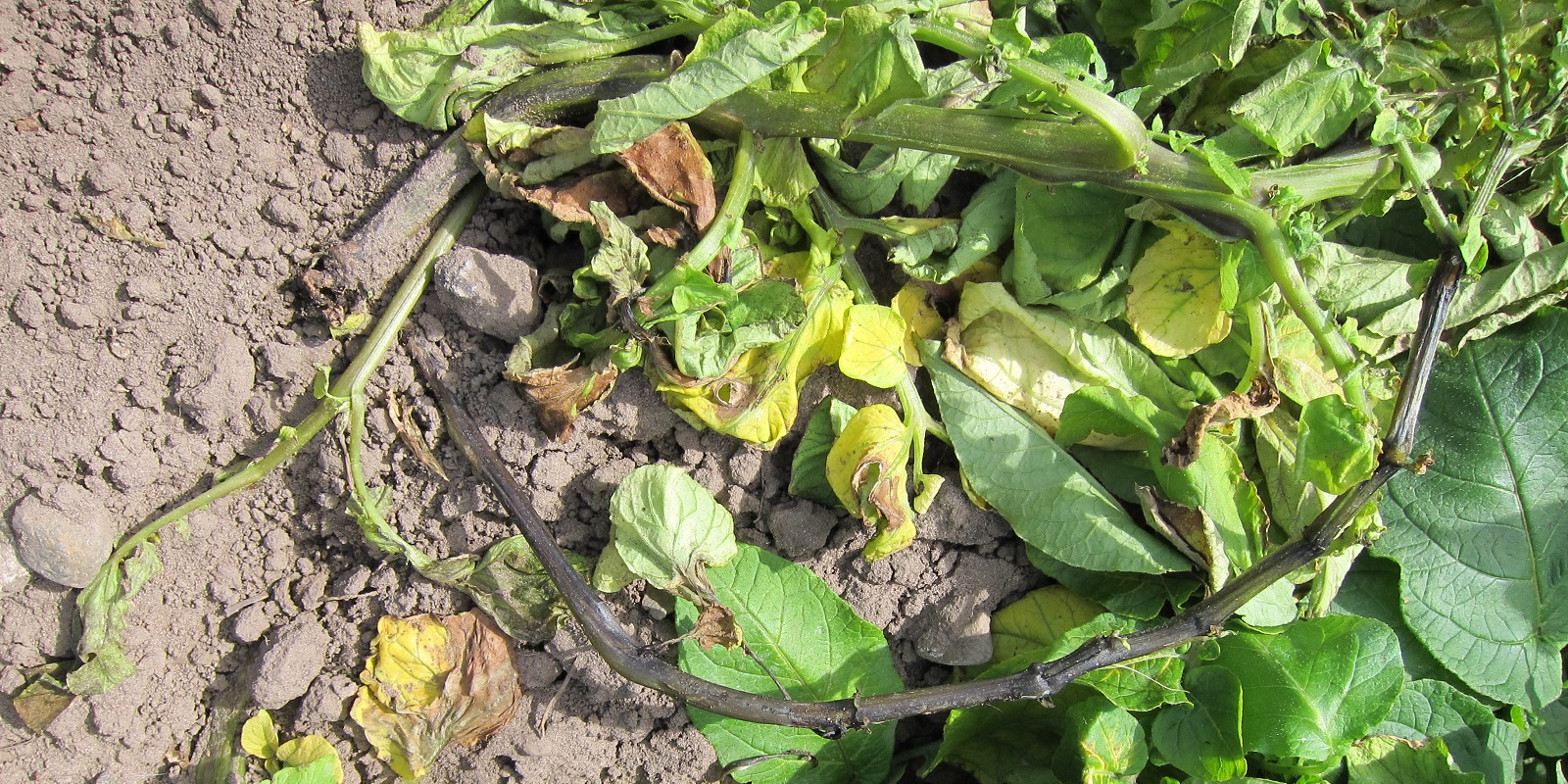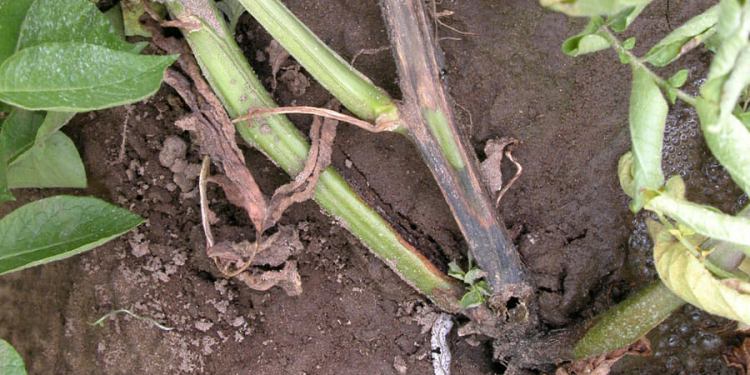Scientists hope to use a type of virus called a bacteriophage to infect bacteria that causes blackleg in potato plants, said Michele Konschuh, a research associate in the University of Lethbridge’s biological sciences department.

The idea that the enemy of my enemy is my friend could help potato farmers in Alberta. Scientists hope to use a type of virus called a bacteriophage to infect bacteria that causes blackleg in potato plants, said Michele Konschuh, a research associate in the University of Lethbridge’s biological sciences department. She likened it to COVID-19 for blackleg. “We want to give the disease organism a disease so it won’t bother the potatoes.”
Blackleg can kill potato plants by causing the stems to blacken and decay, blocking the flow of nutrients and water. Konschuh is leading a multi-pronged research effort to help farmers fight the problem. “One of the trickier aspects of blackleg is that it can remain latent in the potato tuber,” said a university statement. “If planting is done under warm and dry conditions, the disease may never appear. However, in a cool, wet spring, the disease can show up.”
Researchers hope to develop solutions to both prevent the latent infection as well as deal with the disease in the field. “I wouldn’t say it’s our worst disease… this one takes a little bit each year, and so cumulatively, it might actually be a bigger impact,” said Konschuh. However, the research project is less about the impact and more about the chance to discover new ways to target blackleg, she added.
Potatoes are grown on about 55,000 acres in Alberta, of which 13,000 to 15,000 acres are used to raise seed potatoes. “The project will focus on seed potatoes to make the most impact with a smaller number of acres,” said the university statement. “Keeping the disease out of seed potatoes will help prevent it from showing up in commercial fields. This will help ensure seed growers maintain the high-quality standards they’ve already achieved and potato growers continue to generate high-yield crops.”
Nearly $200,000 in funding will be provided to the project over three years from the provincial Results Driven Agriculture Research (RDAR) fund, said Konschuh. Her research team will include Larry Kawchuk and Jonathan Nielson of Agriculture Canada. Blackleg is primarily caused by Pectobacterium and Diceya bacteria, said the university statement. “Of the two, Dickeya is especially aggressive and has reduced yields by 20 to 25 percent in Europe and Israel, where the pathogen is established.”
Pectobacterium is solely responsible for blackleg in Alberta, Konschuh said in the statement. “At this time, we have no Dickeya and we want to keep it that way.” The province was recently declared officially free of potato cyst nematodes. The announcement was made 14 years after the pest was first suspected in two fields, disrupting the seed potato industry.

Due to the fact blackleg is caused by bacteria, it can’t be treated by pesticides or fungicides, said Konschuh in an interview. Bactericides or antibiotics aren’t an option because of the risk of the microbes evolving resistance. Seed potato growers must currently rely on practices ranging from rotating crops to cleaning and sanitizing equipment and storage units, said the university statement. Konschuh’s team plans to investigate rapid diagnostic tools currently available on the market to promote early detection of blackleg, as well as work on developing additional methods.
“Such tools would allow producers to obtain a diagnosis when they see a suspicious plant in the field instead of having to wait for laboratory results,” said the statement. Scientists are also looking at an information campaign to share details of their research and outline best practices for seed growers, it said. They are also considering strengthening potato plants by using endophytes, it added. “Endophytes are organisms that live within a plant and can have beneficial properties, like the good bacteria that live in the (human) gut.”
Researchers plan to focus on arbuscular mycorrhizal fungi in soils, said Konschuh. There have been reports such fungi can “help kind of almost vaccinate the crop against the threat of bacterial infection like that,” she said. Blackleg occurrences are weather dependent so predicting how it will affect potato crops this year is like looking into a crystal ball, she said. “I’ve heard we don’t have an excess of soil moisture in the south… if we have a warm, dry spring, then typically we don’t see as much of the disease, so in the south here, it’s probably not going to be a terrible blackleg year.”
However, soil conditions tend to be wetter in the more northerly areas where seed potatoes are grown, she said. “And if it’s cool and wet, then we usually get a little more blackleg expressed, but it’s always present. There’s always some Pectobacterium in the soil… so we’ll probably have some, but I don’t expect it to be a rotten year.”





